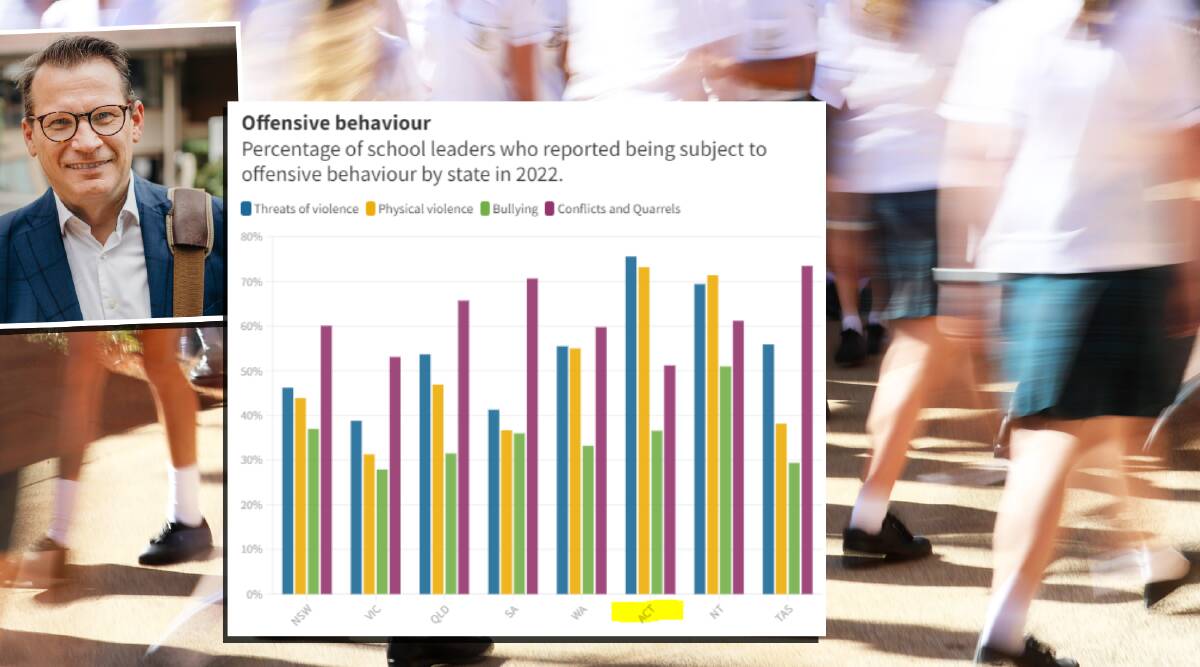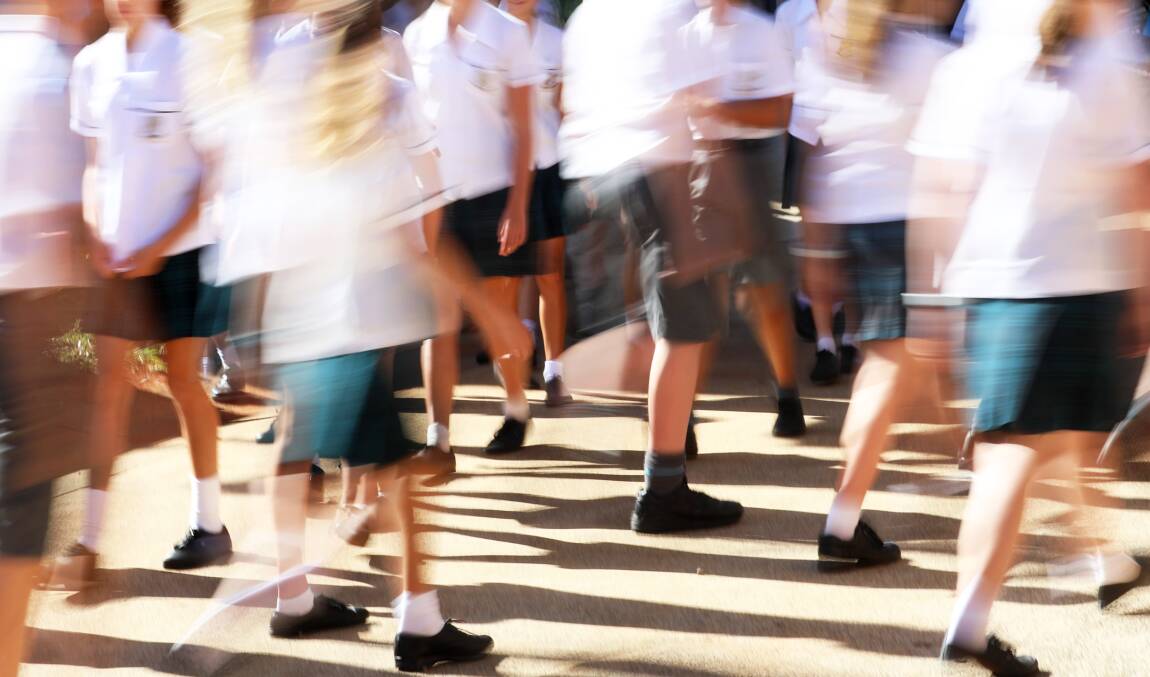
Three-quarters of ACT principals faced physical violence and threats of violence last year, the highest rates across Australia, new survey data shows.
Australian Catholic University's annual survey of 2500 school leaders found ACT principals were also most at risk of serious mental health concerns based on their responses, 58.5 per cent getting a 'red flag' alert.
The data paints a grim picture of how escalating threats of violence, punishing workloads and chronic staff shortages have hit school principals hard.
ACU investigator and former principal Dr Paul Kidson said the ACT was significantly out of step with the rest of the nation and a strong intervention was needed.
"Can you imagine the outrage if that sort of data was being experienced by those who work in the public service, by those who work in private industry, by those who work in the hospitality industry?" Dr Kidson said.
"In no other environment should we expect these things to be acceptable and we don't and shouldn't expect them to be acceptable within schools."

The Australian Principal Occupational Health, Safety and Wellbeing Survey 2022 showed 44 per cent of principals across the nation were subject to physical violence, the highest percentage since the survey began in 2011.
Nationally, 48.8 per cent of leaders were subject to threats of physical violence, the second-highest rate since the survey began.
But in the ACT, 75.6 per cent of school leaders faced threats of violence and 73.2 per cent faced actual physical violence.
Of these principals, 80.5 per cent said the violence was from students and 39 per cent said it was from parents.
Dr Kidson said the study did not provide reasons for why ACT was an outlier but policy-makers needed to act urgently to improve the situation.
"What it does say is that those who are policy-makers and those who are responsible for the governance of education in the ACT have got some really worrying evidence that they need to take very seriously. And that's a major shift in what we've been saying for the last few years," he said.
An ACT Education Directorate spokesman said incidents were taken seriously and formal mechanisms were in place to prevent and reduce the risk of occupational violence against staff and support the work health and safety of the entire workforce.
"Every school worker, leader and student should be safe at school, free from bullying, harassment and violence," the spokesman said.
"Any instance of violence or harassment in a school is unacceptable. The ACT government is committed to building a positive reporting culture where staff and students feel safe and supported to come forward."
The safe at school taskforce established in May 2022 will develop a safety, health and wellbeing strategy and associated supports, resources and policies for all ACT public schools, while principals and aspiring school leaders have access to mentoring and professional development initiatives, the spokesman said.
Half of all Australian school leaders were at risk of serious mental health concerns while special school principals were most at risk, with 56.3 per cent of respondents triggering red flag emails.
Public school principals faced higher levels of distress, 51.8 per cent getting a red flag notification, compared to 35.3 per cent of Catholic school leaders and 27.7 per cent of independent school heads.
Principals' workloads have also increased to about 56 hours per week while job satisfaction, trust between employees and trust in management have dropped to the lowest level since the survey started.
Association of Heads of Independent Schools of Australia chief executive Dr Chris Duncan said school leaders were dealing with deterioration of mental health of their students and staff.
"There are good stories to tell as well as the bad ones, but I think the COVID and post-COVID phenomenon has made things worse," Dr Duncan said.
"Where we see a spike in the wellbeing needs of all our principals in whatever school sector, clearly that's a warning sign and an indication that more needs to be done."
Dr Duncan said many school boards had explicit programs to assist the wellbeing of the head of school and that ensuring principals maintained job satisfaction would have benefits for their wellbeing.
"We've typically separated wellbeing from the job and the two are, of course, intertwined. I think we need to think about it in a much more integrated way," Dr Duncan said.
The ACU researchers have called for low-value tasks to be dropped and for personal health and wellbeing to be included in performance frameworks for school leaders.
Above all, employers and governments needed to listen to school leaders who were rapidly burning out, Dr Kidson said.
"We can come up with the greatest national school reform agreement in the world. We can come up with a great national teacher workforce action plan, but the ones who have responsibility for the implementation of that are waving the flag and saying, 'Please, this is not working'," he said.
"We really need to change this and we need to change it quickly."
Send us a letter to the editor
- Letters to the editor should be kept to 250 or fewer words. To the Point letters should not exceed 50 words. Reference to The Canberra Times reports should include a date and page number. Provide a phone number and address (only your suburb will be published). Responsibility for election comment is taken by John-Paul Moloney of 121 Marcus Clarke Street, Canberra. Published by Federal Capital Press of Australia Pty Ltd.
We've made it a whole lot easier for you to have your say. Our new comment platform requires only one log-in to access articles and to join the discussion on The Canberra Times website. Find out how to register so you can enjoy civil, friendly and engaging discussions. See our moderation policy here.








